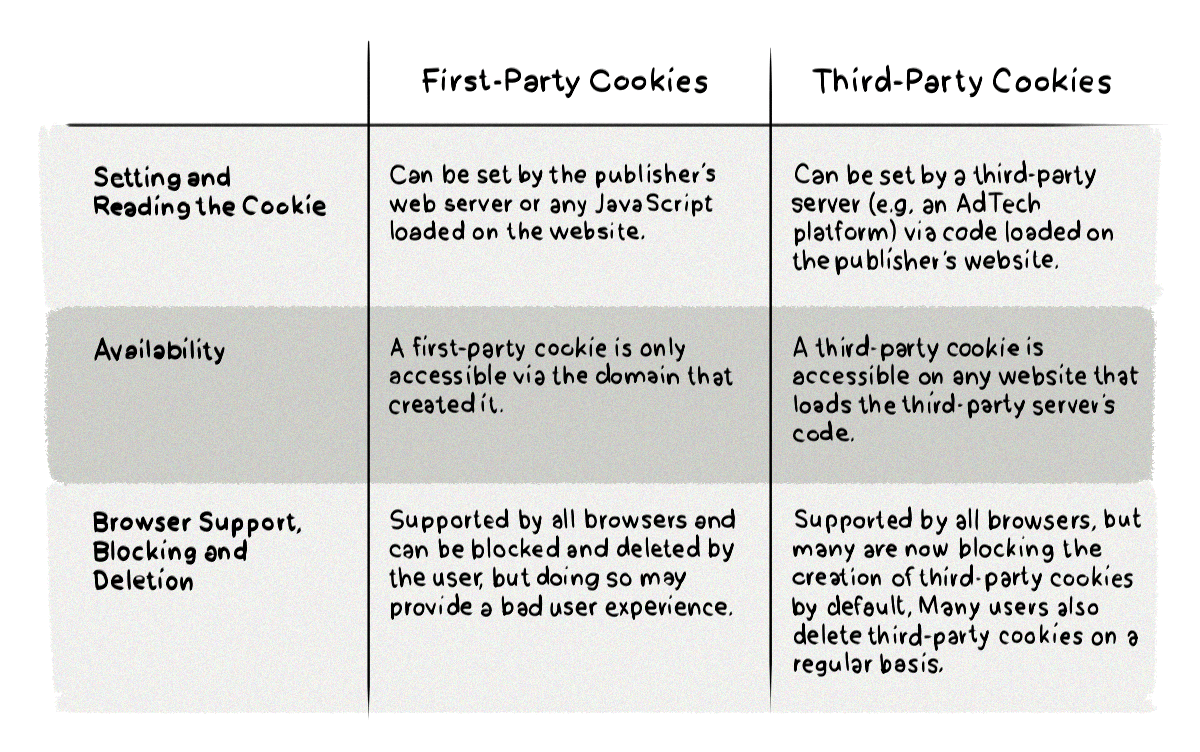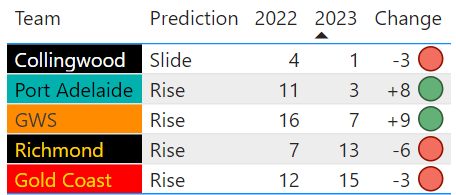Third-Party Cookies - Impacts on data and marketing
Google announced that it would phase out third-party cookies on its Chrome platform starting in early 2022. Although first party cookies remain, this will have a huge impact on many industries, particularly those reliant on the data generated from these cookies to conduct personalised advertising.
We have pulled together a concise summary of what this all means and why it might be of interest to you.
Third-party cookies in a nutshell
When you visit a website, the publisher of the website you land on can place first-party cookies on your hard disk, which essentially stores some information about you and/or the way you behave. With third-party cookies, the same thing essentially happens, but instead of the publisher of the site you're on dropping the cookie into your browser, a third-party who has embedded code on that site, drops it. This generates valuable data about your personal preferences, and is the reason why specific ads relating to your recent searches land conveniently in your search engine, favourite blogs or social media streams.
Here's a simple breakdown of how first & third-party cookies compare
Source: https://clearcode.cc/blog/difference-between-first-party-third-party-cookies/
Our research found this interesting breakdown of all of the impacts this phasing out could have. We've broken them down into a short version here:
1. Advertisers won't know if you've seen their ad, so a user could see the same ad 100 times or more if the promotion isn't managed with this in mind. How annoying!
2. No more re-targeting - imagine you click on a targeted ad today, but stay strong and decide not to buy. A week later, you receive a similar ad, but this time, it's offering you a promotional discount on the product you. You feel special for getting this discount so you use it to make the purchase, and the business gets the sale.
This will have to be reinvented with the absence of 3rd party cookies because It’s true that no one wants to be targeted by something that doesn’t suit their interest and that’s how ads will hit you after the loss of these cookies
3. Converting becomes more complex - advertisers won't be able to automatically stop promoting campaigns to converted customers. Similarly, if you click an ad to learn more about a product, then decide to purchase said product two weeks later, businesses will no longer know the two interactions were linked.
4. Availability of information about individuals will be a lot more scarce, meaning categorising behaviours and preferences into groups will become more difficult.
5. Shifting from demographic targeting to contextual - in simple terms, let’s say you’re reading a sports article after you recently visited a travel booking site—ads about sportswear might appear, but not the ads related to the site you previously checked
Contextual targeting is serving your audience ads related to the site they’re currently in, regardless of their previous search history and behavior which will no longer be possible with the death of third party cookies.
6. There’s still another cookie left - Third-party cookies were important for advertisers to serve ads to different types of customers without which there is no targeted audience but the first-party cookies will stay to make sure your website remembers your visitors once they come back and companies are building more solutions to deal with this.
So what’s left for marketers? There are a number of benefits to be had as well…
There will be (and is) an evolution of how companies can understand who you are, through a combination of publisher first-party data, signed in users, and standardised universal IDs.
The cookie has never been a perfect tool for powering the adtech world - cookies are particularly bad in a world of cross-device shopping.
As Safari was the first to initiate the blocking of third-party cookies, they have paved the way for enhanced privacy for users, with browsers including Brave and Chrome following behind. These changes make it more difficult for cross browser personal information leakage which was a feature of cookies being ‘global state’ and unless the browser had specific blocks on them in third-party contexts, information including fingerprint logins could be leaked across sites.
Other slightly more complex benefits associated with the blocks include:
disables cross-site forgery attacks against websites through third-party requests
removes the ability to use an auxiliary third-party domain to identify users
if you need cookie access as third-party, you can just use the Storage Access API
What exactly will be available?
Google has told readers its Privacy Sandbox will “fundamentally enhance privacy on the web”. Through the Privacy Sandbox, cookies will be replaced by five application programming interfaces (APIs).
What's important to remember is that Google have a number of very intelligent people working behind the scenes at all times, and with the fall of 3rd party cookies, and potentially a number of jobs and businesses who are heavily reliant on the data they provide, will come new technologies and business.
This also opens up the discussion about the growing importance of first-party cookies. Whereas a number of stakeholders traded third-party data to gain extra insights about customer groups and preferences, without any additions to the way businesses can track people's behaviour, the data generated from sites with large audiences will (potentially) be in the driving seat when it comes to providing and generating revenue from this type of data.
Coming full circle, as Google dominates search engine traffic, reducing the ability of other businesses to provide ongoing personalised advertising seems like a convenient strategy to give the tech-giant more leverage for selling our data to gain back these insights. Consequently, this could give companies like Amazon and Facebook even more power as they are host to such large audiences and hence large stores of our personal data.
https://www.visualcapitalist.com/this-chart-reveals-googles-true-dominance-over-the-web/
Data discussion
From a White Box perspective, this is a call-to-action for many businesses to ensure they have a true focus on their own data strategy. This could come about from better optimising websites for data collection or developing a data strategy to ensure a true understanding of customers. This will enable a safeguarding of operations as the advertising landscape transforms into a new era, and with it the way consumers and businesses interact and provide the next waves of value for each other.
[Source 1, Source 2 & Source 3]
[Ad revenue source]













